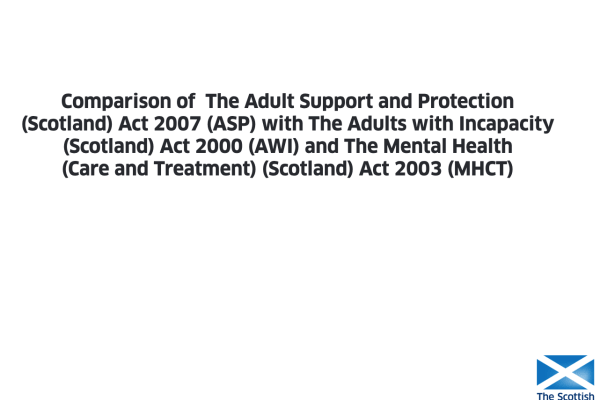Rights, choices and decisions (5 Nations)
These are the slides from a 5 Nations webinar held in February 2024. This series of webinars shares adult support and protection / safeguarding knowledge across the Republic of Ireland, Northern Ireland, England, Scotland and Wales.
The theme of this webinar is rights, choices and decisions. The sessions are:





